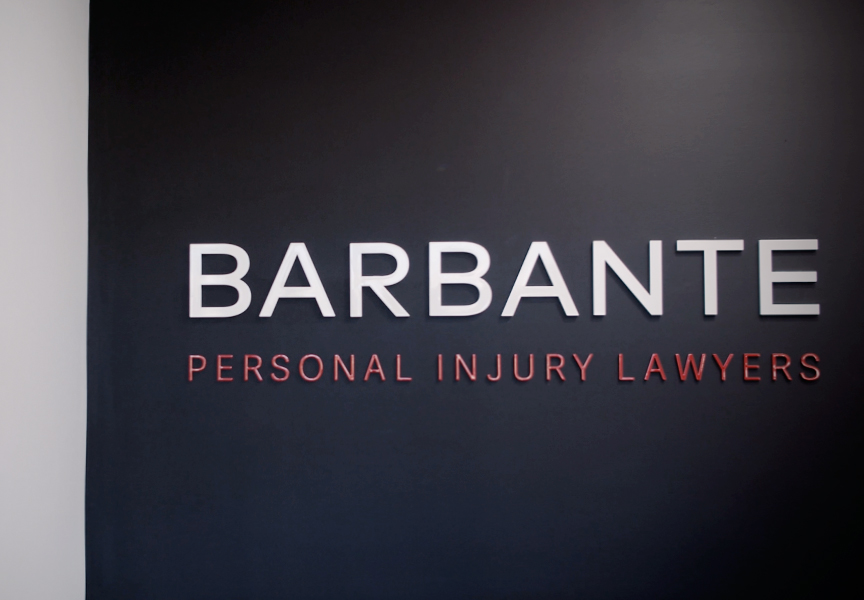Superannuation
Superannuation Lawyers
Securing Your Future
If an injury, illness, or medical condition prevents you from working, you may be eligible to claim benefits through your superannuation insurance.
Most superannuation and insurance policies have benefits to protect you in circumstances where you are unable to return to work due to your injury or illness.



The Team at Barbante Personal Injury Lawyers are comprehensive and informative. I am delighted with the outcome I got from them. Thanks to Carmelo and the Team.
Philip Sellars

Total and Permanent Disability (TPD)
Total and permanent disability claims (TPD) provide a lump sum payment if you cannot return to work.
The definition of “total and permanent disability” differs for each policy. However, it generally covers conditions that are unlikely to improve and prevent your return to work, given your educational, training, or experiential background. This means you only need to show that you cannot return to work that you are suited for. This only includes occupations within your skills and work history. As with any insurance policy and compensation scheme, there are strict criteria you must fit to be able to claim.
When assessing TPD claims, consideration is given to all of the following:
- Physical limitation
- Psychological conditions
- The realistic likelihood of returning to work
- The prospect of you finding employment

Income Protection (IP)
Income Protection is insurance that provides you with an income stream for a defined period if you cannot work due to illness or injury.
Income Protection benefits can be held within superannuation, or they can be held directly through a private insurance policy.
If you cannot work due to your injury sustained, IP insurance could give a monthly benefit for a fixed and predetermined period.
Policy terms and entitlements vary between insurance policies. However, Income Protection benefits are generally paid as a monthly benefit, that is 75% of your pre-disability income. This is paid on the condition that you can no longer perform your occupation due to your medical condition and that you are under the regular care of a doctor, these benefits may be paid for 2 years, 5 years or until the age of 65.

A Death Benefit
A Superannuation Death Benefit is a financial benefit to the beneficiaries of your policy in the event of the death of a loved one.
This payment is made to a dependent beneficiary or the Trustee of a deceased estate following the person’s death. The payment can include any remaining funds in the deceased’s superannuation account balance, along with a death insurance payment to be paid out to beneficiaries. If you have not designated a beneficiary, the Trustee of your superannuation fund will distribute your death benefit to your estate or decide which eligible beneficiaries the funds should be awarded to based on their discretion.
If there is more than one beneficiary, the superannuation fund’s Trustee will determine how to divide the payment among the beneficiaries. The distribution decision will be determined on the extent of each beneficiary’s dependence on the deceased, such as financial dependency and specific relationship factors.
We Will Assist You Through Each Stage and Work to Achieve the Best Outcome
Step 1
Attend Your Free Appointment
We will discuss your policy and obtain detailed instructions about your injury or illness. The entire claim process will be explained. Our legal cost agreement will also be explained in detail to you.
Step 2
Investigate Your Policy
Once you choose to proceed, we will request details of your policy and obtain relevant medical records and evidence from third parties, such as Income Tax Returns, WorkCover/TAC claim files or Centrelink claim files. The relevant insurance policy will also be reviewed to advise you of the specific definition applicable to you. We will also draft detailed submissions to the fund and insurer in support of your claim.
Step 3
Submit Your Claim
When all supporting evidence has been obtained from third parties and treating medical professionals, we will submit and complete all claim forms on your behalf.
Once your claim has been submitted, you might need to attend an independent medical examination. This will be about the history of your injury or condition and concern questions about your work history, previous medical history, or in the case of a psychiatric examination, your previous life experiences.
Step 4
Resolution
When we obtain a successful outcome on your claim, we will contact you for instructions on how you wish to receive your benefit. It is at this stage that it is recommended that you obtain financial advice. If your claim is declined, your claim will be reviewed, and we will discuss further action you can take.

Superannuation FAQ
Total and Permanent Disability (TPD)
Total and permanent disability claims (TPD) provide a lump sum payment if you cannot return to work.
The definition of “total and permanent disability” differs for each policy. However, it generally covers conditions that are unlikely to improve and prevent your return to work, given your educational, training, or experiential background. This means you only need to show that you cannot return to work that you are suited for. This only includes occupations within your skills and work history. As with any insurance policy and compensation scheme, there are strict criteria you must fit to be able to claim.
When assessing TPD claims, consideration is given to all of the following:
- Physical limitation
- Psychological conditions
- The realistic likelihood of returning to work
- The prospect of you finding employment
Income Protection (IP)
Income Protection is insurance that provides you with an income stream for a defined period if you cannot work due to illness or injury. Income Protection benefits can be held within superannuation, or they can be held directly through a private insurance policy.
If you cannot work due to your injury sustained, IP insurance could give a monthly benefit for a fixed and predetermined period.
Policy terms and entitlements vary between insurance policies. However, Income Protection benefits are generally paid as a monthly benefit, that is 75% of your pre-disability income. This is paid on the condition that you can no longer perform your occupation due to your medical condition and that you are under the regular care of a doctor, these benefits may be paid for 2 years, 5 years or until the age of 65.
A Death Benefit
A Superannuation Death Benefit is a financial benefit to the beneficiaries of your policy in the event of the death of a loved one.
This payment is made to a dependent beneficiary or the Trustee of a deceased estate following the person’s death. The payment can include any remaining funds in the deceased’s superannuation account balance, along with a death insurance payment to be paid out to beneficiaries. If you have not designated a beneficiary, the Trustee of your superannuation fund will distribute your death benefit to your estate or decide which eligible beneficiaries the funds should be awarded to based on their discretion. If there is more than one beneficiary, the superannuation fund’s Trustee will determine how to divide the payment among the beneficiaries. The distribution decision will be determined on the extent of each beneficiary’s dependence on the deceased, such as financial dependency and specific relationship factors.
Each superannuation fund differs in its criteria and requirements for determining eligibility. Your entitlements depend upon the superannuation fund’s terms of the ‘trust deed’, as well as the terms of the specific insurance policy.
Our team is more than capable of assisting you in assessing whether or not you can lodge a claim. To help us out, we will need the following:
- Your Superannuation Fund Financial Statement from when you stopped working or when the injury occurred. This Statement will indicate if you were insured at the appropriate time.
- Medical evidence to prove that you were unable to return to work. This is dependent upon the definition of your fund.
If you approve us to act on your behalf, we will request further medical reports from your treating doctors and specialists regarding your injuries or illness. These will be used to make a claim on your behalf for your insured benefit.
A claim can be lodged as soon as you stop work. This means you can claim your Superannuation Insurance Benefits when you can’t work due to illness, injury or disability. You can also request your superannuation account balance as a lump sum or to be made available in instalments once you have retired.
For a disability benefits claim, you will need a claim form, medical reports and relevant documents from medical and other relevant authorities. Tax reports and written submissions will also be required. A helpful rule of thumb is that the more information gathered, the better for your claim.
For death benefits claims, you need a claim form and any papers showing your relationship to the deceased and any financial dependents.
We can assist you if you need a hand in getting the documents required to lodge a claim. From the forms themselves to guidance throughout the procedure and even collating and submitting all the information, we’re here to help.
Your injury and incapacity does not have to be work-related to make a claim for income protection or total and permanent disability insurance.
Yes, you can have multiple Total Permanent Disability (TPD) claims. This is more usual for individuals who are a member of multiple superannuation funds.
Can you have a superannuation claim as a pre-existing WorkCover, TAC or Public Liability client of Barbante Personal Injury Lawyers’?
Yes. If you have a pre-existing claim with us, we’ll probably already have all the evidence required collated. This makes for an advantage as we will be better positioned to assess the likelihood that you will benefit from a successful superannuation claim.
Yes, you will generally have to see insurance doctors. These appointments are called Independent Medical Examinations and must be carried out by a certified medical representative.
Your TPD claim will likely stop. However, you might still be eligible to receive partial disability payments depending on the type of work being performed and the circumstances in which you return to work.
As each claim is unique, the Barbante team will offer correct, tailored legal advice and ensure you understand your situation.
When a loved one passes away, any dependents of the deceased or their estate can claim superannuation death benefits. This includes a legally married spouse, de facto partner (including same-sex partners), children, financial dependants and inter-dependants.
If a claim is rejected, you can submit a complaint about the decision within 28 days. If you lodge an internal complaint, the insurer or trustee will be required to decide within 90 days.
Appeals can be made to the Superannuation Complaints Tribunal within 28 days or to a court.
A TPD payout from a superannuation fund is not considered taxable income. However, you may have to pay superannuation lump sum withdrawal tax if you transfer it into your regular account(s).
Tax requirements can also vary depending on factors such as your age, pension status, and policy conditions. It is always recommended to obtain financial advice before you claim your payout.
Depending on the type of Centrelink entitlements you receive, a TPD payout may affect your regular payments. This is particularly relevant for pensioners who plan to transfer their TPD payout into an everyday account. When in doubt, report your financial situation to Centrelink.
Explore More
View all
About Us
We are accessible and approachable to all clients, regardless of how small or big their claims may be.


Our Difference
We value the hard-earned respect we have built among clients and the broader community.


Our Reviews
We pride ourselves on the fact that many clients come to us through recommendations from satisfied clients.





